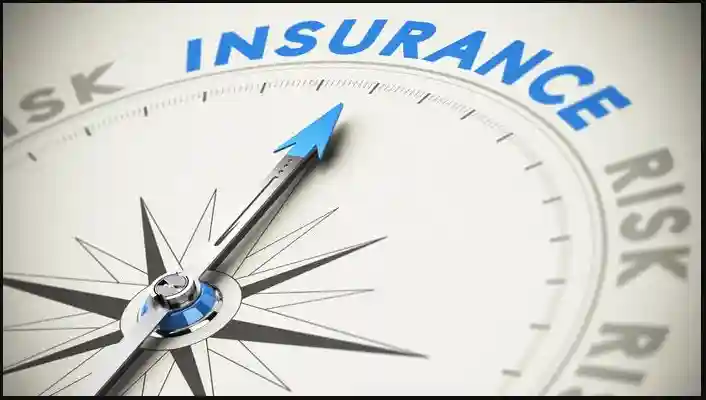The Importance of Experience in Shaping Personal Growth
Experience is one of the most significant factors that shape our lives. It influences our decisions, actions, and reactions. We gain knowledge and skills through experience, which helps us grow personally and professionally. Every encounter, whether positive or negative, leaves an impression that changes our perspective. This article will explore how experience impacts personal growth, what makes it essential, and why it’s critical in helping us navigate through life.
Why Experience Matters
Experience provides us with lessons we can’t learn from books. It helps us see beyond theory and understand the practical application of knowledge. When we experience something firsthand, we gain a deeper insight into how things work. This understanding often leads to better decision-making.
For example, imagine reading about riding a bike versus actually riding one. The former gives you information, but the latter gives you the real skill. This direct interaction with the world is what makes experience so valuable. It gives us context, shows us how to adapt, and makes us more resilient.
The Role of Experience in Learning
Learning through experience is much more powerful than passive observation. When you try something yourself, you get to see the results of your actions. If you fail, you learn what doesn’t work. If you succeed, you reinforce the knowledge and feel more confident in your abilities.
Moreover, experience often involves challenges that push us out of our comfort zones. These challenges force us to think critically and creatively. By facing difficulties and finding solutions, we become more adept at handling future obstacles. The more experience we gain, the better prepared we are for the next challenge.
Gaining Confidence Through Experience
Experience plays a crucial role in building confidence. When we repeat tasks or face similar situations multiple times, we become more familiar with them. This familiarity breeds confidence. Once you’ve successfully navigated a situation, you’re more likely to feel capable of handling it again.
For instance, public speaking is a common fear. However, with repeated experience in speaking before an audience, the fear diminishes. The more you do it, the more comfortable you become. Over time, your confidence in public speaking grows. This concept applies to many areas of life. The more experience you have, the more confident you become in your abilities.
Learning From Mistakes
One of the most significant advantages of experience is learning from mistakes. No one is perfect, and we all make errors. However, these mistakes often teach us the most valuable lessons. When we experience failure, we learn what doesn’t work. This knowledge helps us refine our approach and try again with a better strategy.
Experience teaches us resilience. It shows us that failure is not the end but an opportunity to improve. Each mistake is a stepping stone toward success, as long as we take the time to reflect and learn from it.
Experience in Professional Growth
In the professional world, experience is often more valuable than qualifications. While education provides the theoretical background, experience shows how well someone can apply that knowledge. Employers frequently prioritize candidates with relevant experience because it indicates that they’ve dealt with real-world situations.
Moreover, professional experience allows individuals to develop skills that can’t be taught in a classroom. Negotiation, leadership, and teamwork are just a few examples of abilities honed through practical experience. These skills are critical to career advancement and are often acquired over time through work experience.
Adapting Through Experience
Experience helps us adapt to changing circumstances. Life is unpredictable, and we often face situations we weren’t expecting. However, when we have experience, we have a toolbox of strategies to deal with surprises. We can rely on past lessons to guide us in making the right decisions.
For example, if you’ve faced a similar challenge before, you’re more likely to remain calm and collected when it happens again. Experience teaches us how to handle stress and uncertainty. As a result, we become more adaptable and better equipped to navigate life’s twists and turns.
The Value of Shared Experience
While personal experience is invaluable, shared experience also plays an important role in our growth. Learning from others’ experiences can save us time and effort. Mentors, for example, provide guidance based on their past experiences. By listening to their advice, we can avoid making similar mistakes.
Moreover, sharing experiences fosters connection. It helps us understand that we’re not alone in facing certain challenges. We gain perspective by hearing how others have overcome obstacles, which can inspire us to push forward in our own journeys.
Experience vs. Knowledge
Knowledge and experience often go hand in hand, but they are distinct. Knowledge is the information we acquire through education or learning, while experience is the practical application of that information. Both are essential, but experience tends to have a more lasting impact.
Knowledge gives us the tools, but experience teaches us how to use them. For example, someone may know how a car engine works by reading a manual, but only through hands-on experience will they become skilled at fixing one. The combination of knowledge and experience creates well-rounded individuals who can both think critically and act decisively.
The Emotional Impact of Experience
Experience doesn’t just affect our intellect and skills; it also shapes our emotions. Certain experiences evoke strong feelings, whether they’re joy, sadness, or anger. These emotional responses influence how we perceive the world and how we interact with others.
For example, a difficult life event may make someone more empathetic and understanding toward others facing similar struggles. On the other hand, a positive experience, like achieving a long-term goal, can boost self-esteem and motivation. The emotional impact of experience is profound and often leads to deeper personal growth.
Using Experience to Make Better Decisions
When faced with choices, experience often acts as a guiding light. People who have been in similar situations can weigh their options more effectively. They know what worked before and what didn’t. This knowledge makes decision-making quicker and more confident.
In contrast, those without experience may hesitate or feel unsure about their choices. They don’t have the same frame of reference, which can lead to indecision or mistakes. Experience empowers individuals to make informed, thoughtful decisions.
The Role of Experience in Relationships
Experience also plays a pivotal role in relationships. Through experiences with others, we learn how to communicate better, understand emotions, and resolve conflicts. Each relationship, whether romantic, familial, or platonic, teaches us something new.
For example, a failed relationship may provide insights into what went wrong and how to avoid similar issues in the future. Positive relationships, on the other hand, show us the value of trust, support, and mutual respect. Experience strengthens our emotional intelligence, which is essential for building healthy connections with others.
How Experience Shapes Identity
Our experiences ultimately shape who we are. Every event, challenge, and success contributes to our identity. Through experience, we discover our strengths, weaknesses, and values. We learn what’s important to us and what we want to pursue in life.
For instance, someone who experiences success in helping others may realize that they value altruism. Another person who faces multiple failures may develop a strong sense of resilience and determination. Our experiences mold our character and define our paths.
Conclusion
Experience is one of the most powerful tools for personal growth. It teaches us lessons, builds our confidence, and helps us adapt to new situations. Through experience, we learn how to make better decisions, develop stronger relationships, and become more resilient. Whether in our personal or professional lives, experience shapes our identities and influences how we navigate the world. It is an invaluable resource that guides us through every stage of life.





